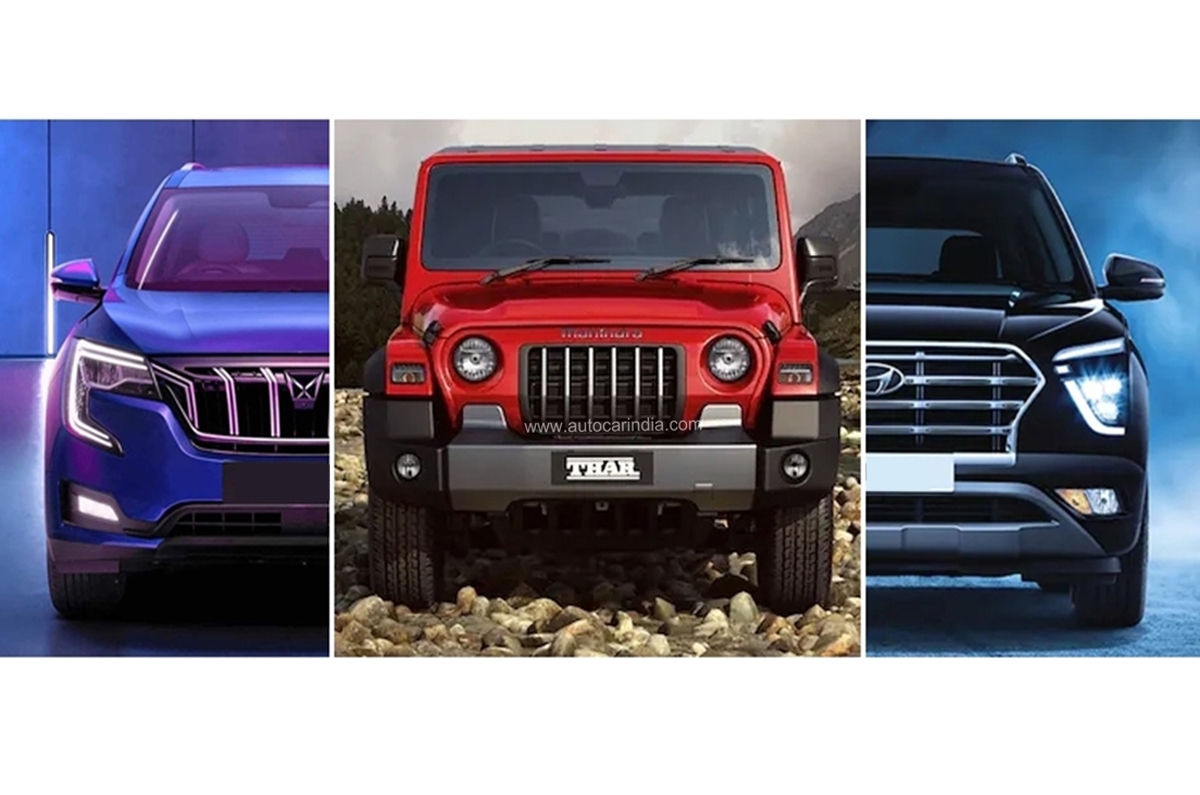
Just as the country is in the midst of the festive season, the auto industry is reeling with the effects of the global semiconductor crisis. Although customer buying sentiment is currently quite positive, almost every carmaker is facing production constraints which is further leading to huge backlogs and waiting periods for popular models. With SUVs being most in demand, some popular models, particularly from the midsize SUV segment, are seeing the highest waiting period of all in the country.
- Hyundai Creta has waiting period of up to 8-10 months
- Mahindra XUV700 and Thar have a waiting period of almost a year
- Smaller SUVs like Magnite and Sonet have a waiting period of 5-6 months
Almost one year waiting period for popular SUVs
The Hyundai Creta has consistently been the bestselling model in the midsize SUV space, even in the face of newer competition. However, the Creta has an average waiting period of at least four months, extending up to a maximum of 10 months in certain places. Creta’s sister model, the Kia Seltos, too has an average waiting period of at least three months, extending up to a maximum of six months.
Mahindra’s newly launched XUV700 recently broke all records by gathering 50,000 bookings in just two days and currently has more than 65,000 bookings. The company also recently announced about the Thar crossing 75,000 bookings in a year, although only about 30,000 units have been delivered to customers and 45,000 orders are still pending. Both these SUVs currently have a waiting period extending up to almost a year.
It’s not just midsize SUVs, but even smaller, popular compact SUVs like the Kia Sonet, Nissan Magnite and Maruti Vitara Brezza have waiting periods extending up to five to six months. Do note that the waiting period for each model may vary depending on particular trim, colour options, powertrain configuration and also from place to place.
Reasons for huge backlog in orders
The semiconductor crisis first stemmed out of the disruption in the supply chain caused by the COVID-19 pandemic, primarily as semiconductor production was concentrated only in countries like China and Taiwan. The crisis has been compounded by the swift rebound in economy, particularly in this festive season, which means more and more people are lining up to buy cars, only to meet rather long waiting periods.
With increased digitisation, gadgets and tech on board cars these days, the reliance of the auto industry on semiconductor chips has also increased greatly. Even outside the automotive space, increased demand for consumer electronics post-pandemic has contributed to shortage of chips for the auto industry. Maruti Suzuki, the country’s largest carmaker, has had to cut production in September and October by as much as 60 percent and 40 percent, respectively, due to the chip shortage. And this trend is expected to continue well into 2022, which means lengthy waiting periods for popular models is going to be the norm for quite some time to come.
Also See:
Tata Punch units booked pre-launch ready for immediate delivery
Semiconductor shortage: Maserati Grecale’s release date postponed
https://ift.tt/3pq9xUp



